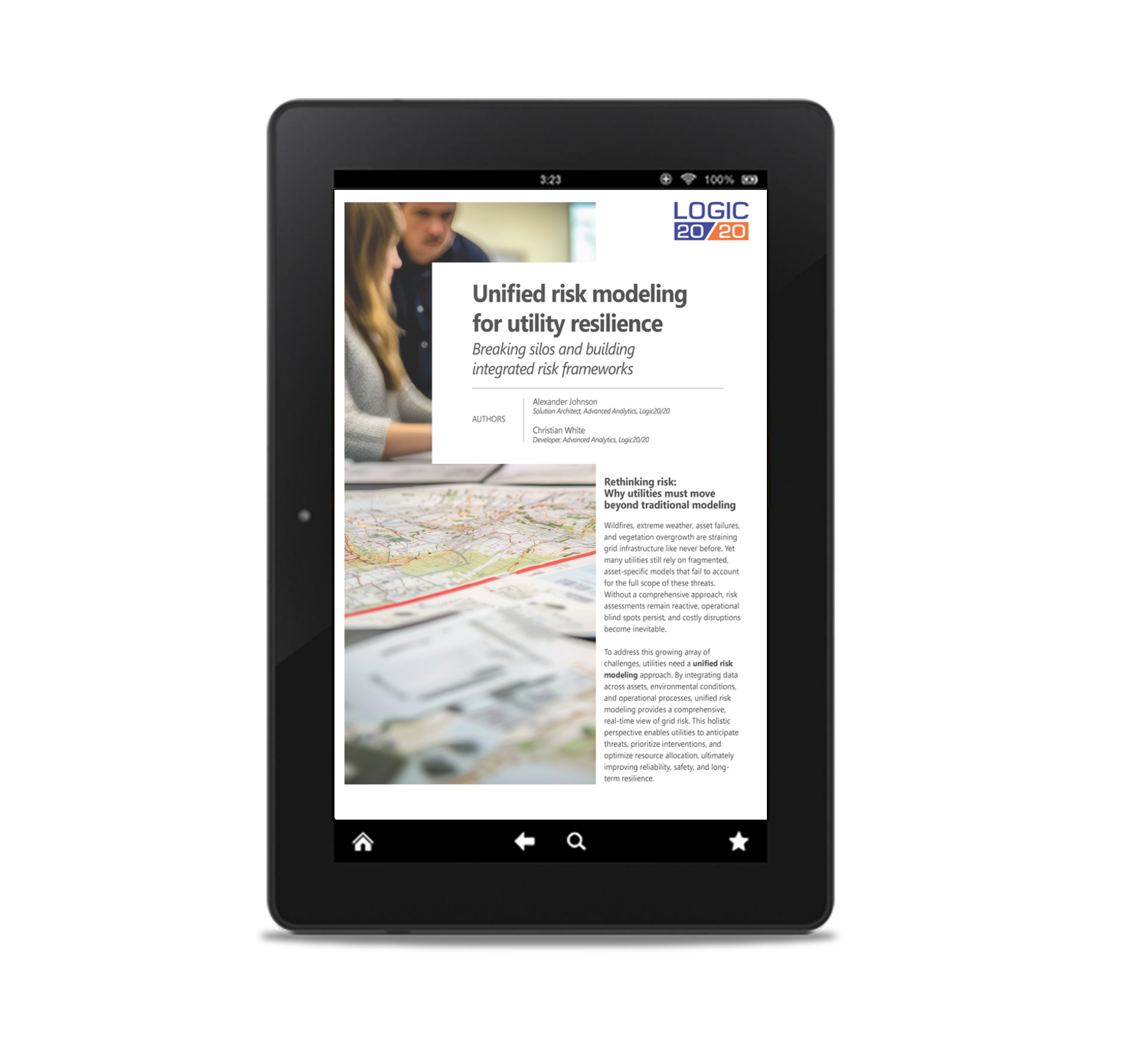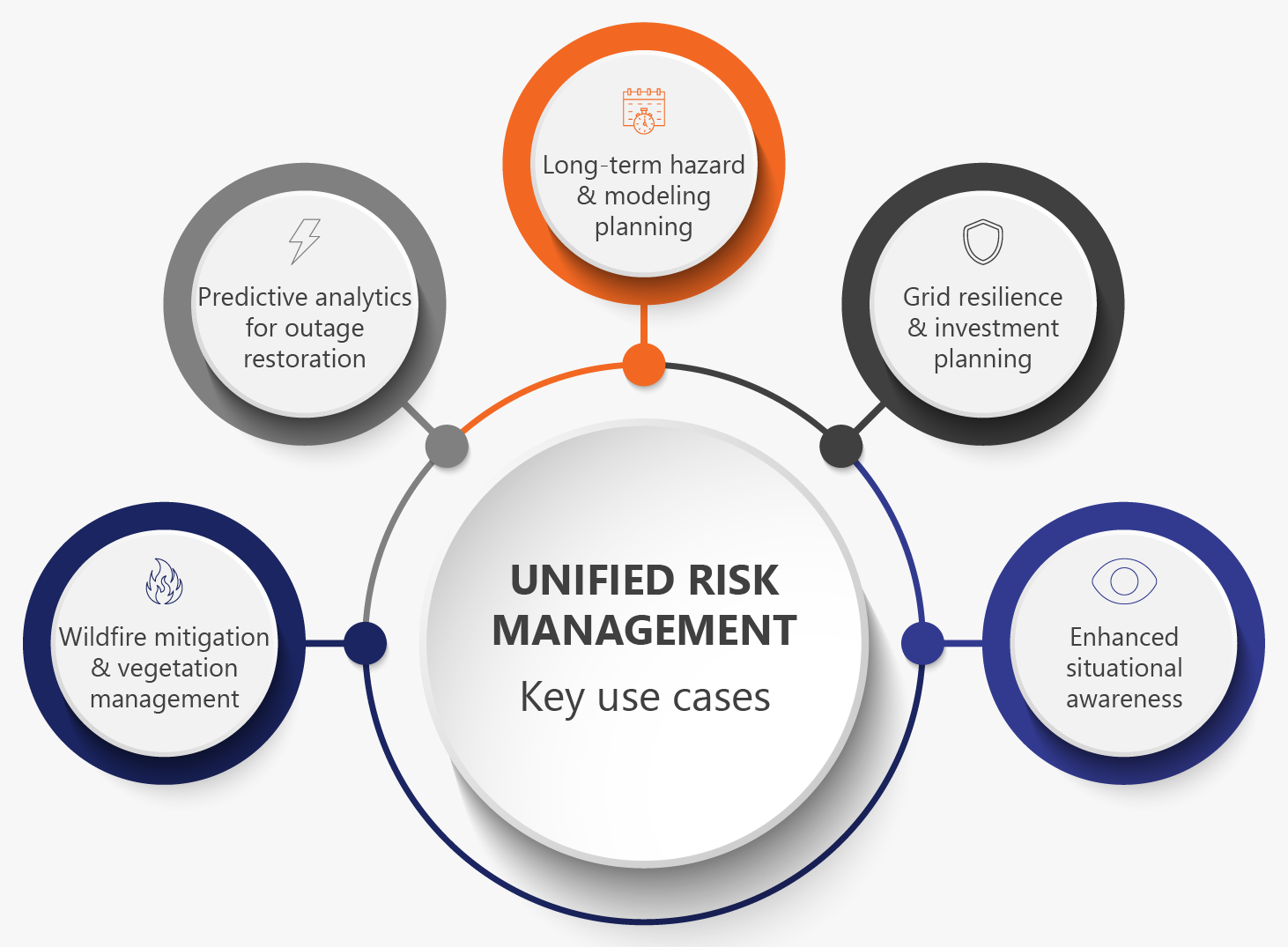This article is based on insights from our white paper Unified risk modeling for utility resilience. Click here to download the paper and learn more about how to overcome the most common struggles with effective risk management.
In this article, we explore the key use cases where unified approaches to risk modeling deliver measurable improvements in safety, reliability, and resilience.
Article continues below.

Top use cases for unified risk modeling
Unified risk modeling transforms utility operations across a wide range of priorities, from wildfire mitigation to long-term investment planning.
Wildfire mitigation and vegetation management optimization
Wildfire risk is complex, driven by asset conditions, vegetation growth, weather patterns, and climate trends. A unified model integrates these diverse factors to prioritize the highest-risk areas for proactive intervention—helping utilities reduce ignition risks and protect critical infrastructure.
Predictive analytics for outage restoration (ETR modeling)
During major weather events, utilities must not only restore power quickly but also provide accurate estimated time to restoration (ETR) forecasts to customers and regulators. Unified risk models combine weather forecasts, asset health data, and crew availability to dynamically predict and adjust ETRs in real time.
Long-term hazard modeling and strategic planning
Risks like infrastructure wear, vegetation changes, and climate-driven events develop gradually. Unified risk modeling enables utilities to identify these slow-moving risks early and adjust maintenance schedules, investment plans, and resilience strategies to strengthen long-term grid reliability.
Grid resilience and investment planning
Unified models support long-term infrastructure investments by providing quantifiable risk assessments. Frameworks like risk-spend efficiency (RSE) help utilities justify capital projects—such as undergrounding lines or hardening assets—by linking them to measurable improvements in reliability, safety, and regulatory compliance.
Enhancing situational awareness for operational decision making
By consolidating data across departments and regions, unified risk models provide real-time situational awareness that improves outage response, resource allocation, and system reliability, even during rapidly changing conditions.
Article continues below.

Why these use cases matter
Utilities today must manage immediate operational risks while preparing for future challenges. Unified risk modeling enables organizations to:
- Prioritize interventions where they will have the greatest impact
- Allocate resources more efficiently during critical events
- Build a defensible, data-driven case for long-term infrastructure investments
- Strengthen regulatory compliance and public trust
These use cases demonstrate that unified risk modeling is not just an analytics initiative—it’s a strategic advantage for utilities committed to resilience, safety, and operational excellence.
What’s next in the series
Next, we’ll dive into the core components of unified risk modeling—the critical building blocks utilities need to create a scalable, sustainable risk management framework.

